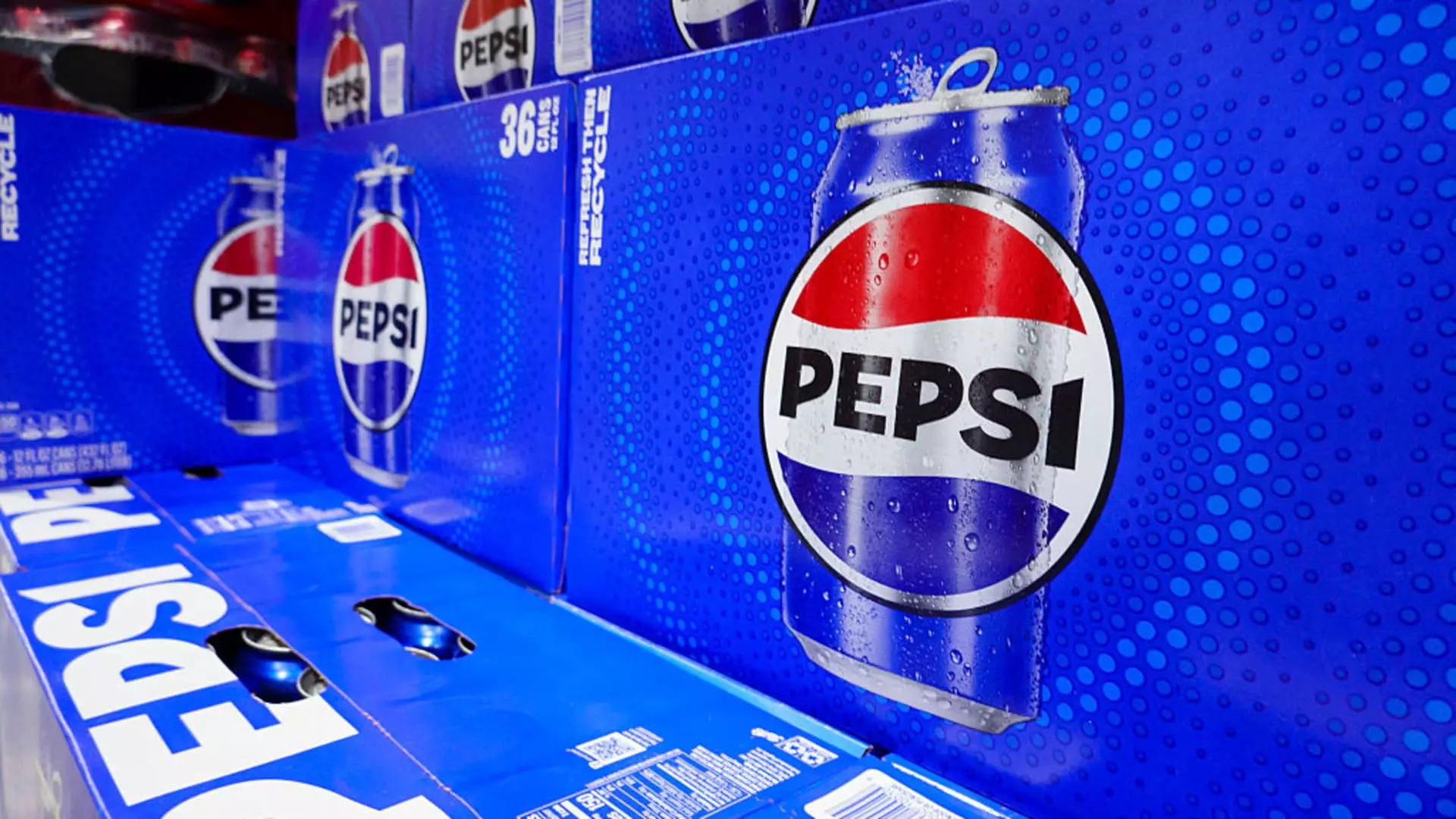Pepsi’s Resilience or Reckless Hope? The Truth Behind the Company’s Struggles

PepsiCo’s recent earnings report presents a picture that is both cautiously optimistic and undeniably complex. On the surface, the company beat Wall Street expectations, signaling resilience amid turbulent economic times. Yet, beneath the veneer of rising revenues lies a narrative of struggle—a company grappling with declining demand, shrinking volumes, and an uncertain future. While executives trumpet strategies aimed at healthier snacks and efficiency gains, these initiatives seem more like stopgap measures than sustainable solutions. The reality is clear: Pepsi’s core markets, especially North America, are under pressure, and recovery remains elusive.
A Tale of Temporary Gains and Lingering Decline
Pepsi’s earnings per share of $2.12 surpassed analyst expectations, and revenue reached a respectable $22.73 billion, a modest increase from last year. However, the narrative shifts when we scrutinize the numbers. A net income plunge from $3.08 billion to $1.26 billion indicates that profitability is eroding precisely when the company needs it most. Despite a slight organic revenue growth of 2.1%, the overall sales volume in North America contracted—food volume fell 1%, beverage volume stagnated, and core soda sales declined by 2%. These figures expose the fragility of Pepsi’s domestic market, which remains the backbone of its revenue.
The apparent optimism about growth—highlighted by double-digit gains for Pepsi Zero Sugar—masks a harsher reality: consumers are seemingly retreating from traditional soda and snack staples, either due to health trends or economic pressures. Relying on product diversification into healthier options is commendable, but it hardly addresses the fundamental issue that American consumers are tightening their belts and pivoting away from discretionary spending on processed snacks and carbonated drinks.
Strategies: Desperate Measures or Genuine Progress?
In response, Pepsi’s executives are doubling down on cost cuts, closing manufacturing plants, and seeking operational efficiencies in logistics. These symptomatic treatments may temporarily boost margins, but they are not palliatives for the broader decline in consumer demand. The company’s efforts to reimagine its core product lineup, such as relaunched Lay’s and Tostitos, and emphasizing multicultural offerings, reflect a recognition of shifting demographics and preferences. Yet, these initiatives feel more like reactive patches than strategic reinforcements.
Pepsi’s aggressive push into healthier snacks and protein-focused products can be seen as a gamble—betting that consumers will eventually gravitate back to snack foods, but history suggests otherwise. Consumers’ changing tastes signal a deeper trend away from traditional indulgences. The reliance on marketing spend and product relaunches seems increasingly like a game of catch-up rather than a transformative strategy. Moreover, the company’s cautious stance on full-year outlooks, predicting only low single-digit organic revenue growth, highlights persistent uncertainties ahead.
Will Cost-Cutting and Shifting Strategies Save Pepsi?
Pepsi’s focus on efficiency by closing plants, streamlining logistics, and re-evaluating marketing investments hints at a company desperate to maintain appearances rather than cure its structural issues. These measures may improve short-term margins, but they do little to address the core challenge: declining volumes and a shrinking consumer base. The American marketplace is undergoing a paradigm shift where health-consciousness, economic austerity, and changing tastes are permanently altering consumption patterns.
While the company projects confidence that demand will rebound as strategies take hold, such optimism might be misplaced. The problem is not just a temporary dip but a fundamental transformation of the market landscape. Investors should approach Pepsi’s recent gains with caution, recognizing that without transformative innovation or deep market repositioning, this might merely be a brief reprieve rather than a sustainable revival.
In the end, Pepsi’s current trajectory underscores the vital importance of aligning corporate strategies with evolving realities. A company heavily reliant on traditional products and outdated marketing paradigms risks being left behind. Without bold innovation and a willingness to accept that the old playbook no longer applies, Pepsi might find itself caught in a cycle of diminishing returns, chasing growth that is increasingly out of reach.





